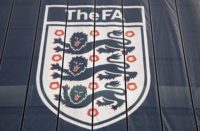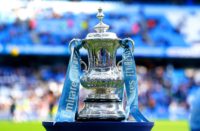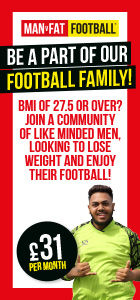Ever since Kettering Town blazed the ambiguous ‘Kettering T' on their shirts, sponsorship in football has been a contentious issue.
It was 1976 when the then-Southern League side put the words ‘Kettering Tyres' on their shirts, later amended to Kettering T, but shirt sponsorship had first been seen in 1973 in Germany. By the end of the decade, Liverpool had secured a deal with Hitachi and sponsorship had entered the mainstream.
Over the years, many different companies have entered into agreements with football clubs, from electronics suppliers such as Sharp or JVC to other major corporations such as Siemens or AIG. Leagues have also attracted corporate backing, with Barclays and Canon two companies who have been behind the Football League at various times.
That trend has continued into the Non-League scene with BetVictor now the main sponsor of the Northern Premier League, Southern League and Isthmian League.
Online gaming's involvement in the game is highly controversial but also lucrative for those teams who can attract such a sponsor. Stoke City have been in such a partnership for several years now, with their ground also bearing the name of their main partner. Online gaming companies account for 17 shirts sponsorships from a possible 24 in the Championship.
The link between betting and football is controversial in part because of the penalties imposed on players who flout the rules. Some, such as Joey Barton, do so in a relatively low-level manner and yet are still hit with strict punishments. Former Liverpool striker Daniel Sturridge is another who has fallen foul of the rules, with some observers feeling the harsh punishments exhibit a certain level of double standards.
The advantages of such partnerships are very clear though. The online gaming industry is thriving and boasts a strong pool of revenue from which to back clubs of all levels. Prizes for the end user are up too, which demonstrates the strong background from which these companies approach such deals.
For example, Gala Spins offers gamers a chance to share in a £1.5m prize pool, underlining the high value of the online gaming market and the revenue they can potentially give to clubs. And they're just one company out of hundreds with the potential to get involved. When money is so tight in the Football League, even as high as League One, there's no surprise to see well-backed partners welcomed with open arms.
Some clubs will do well to resist such partnerships though. Lincoln City was one of the biggest stories in non-league a few years ago, climbing out of the National League but also reaching the FA Cup Quarter Finals, an unprecedented achievement for a fifth-tier side in the modern game.
Banned
However, few recall their defender Bradley Wood, a key component of their title-winning side, subsequently being banned from all football activity. Bradley Wood was banned for six years in the year after the Imps were promoted for match-fixing offences. It's unlikely that the Imps would boast an online gaming partner on their shirts, even if they were approached.
The fine balance for clubs at all levels isn't easy to achieve. Financial security can be gained by making the right choice of commercial partner and online gaming companies do have the resources available to make a club relatively secure. In the main, there's nothing wrong with such partnerships either; online gaming or indeed sportsbooks have become a part of football culture for fans on a match day.
However, clubs must also be aware of the darker side of the debate, those who are tempted into doing wrong and therefore taint not only themselves but also the industry that can do so much for the game, especially amongst clubs in steps three and four of our Non-League pyramid, where every penny of income is precious.
Make sure you get your copy of The Non-League Paper on a Sunday for the latest news from across Non-League over the last seven days on the growing impact of the coronavirus on the game and society.


















